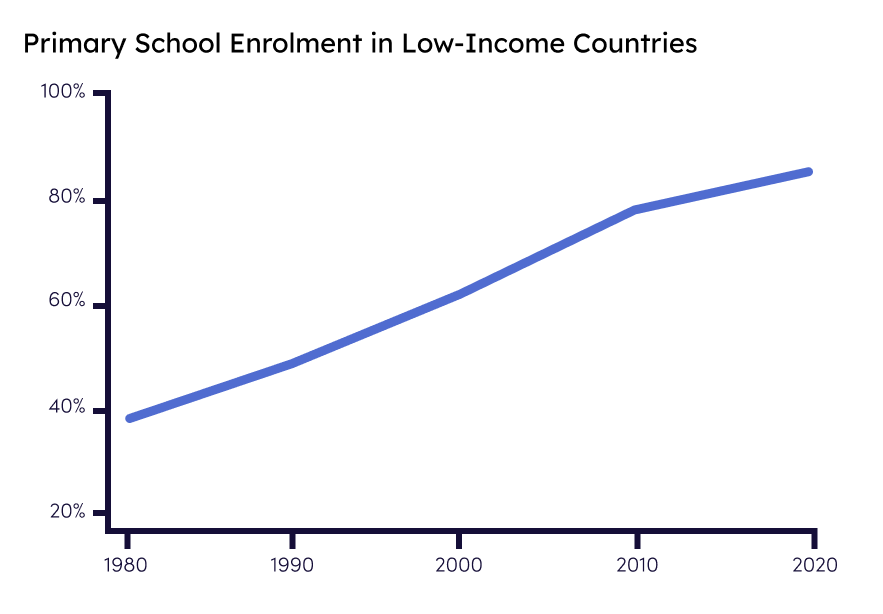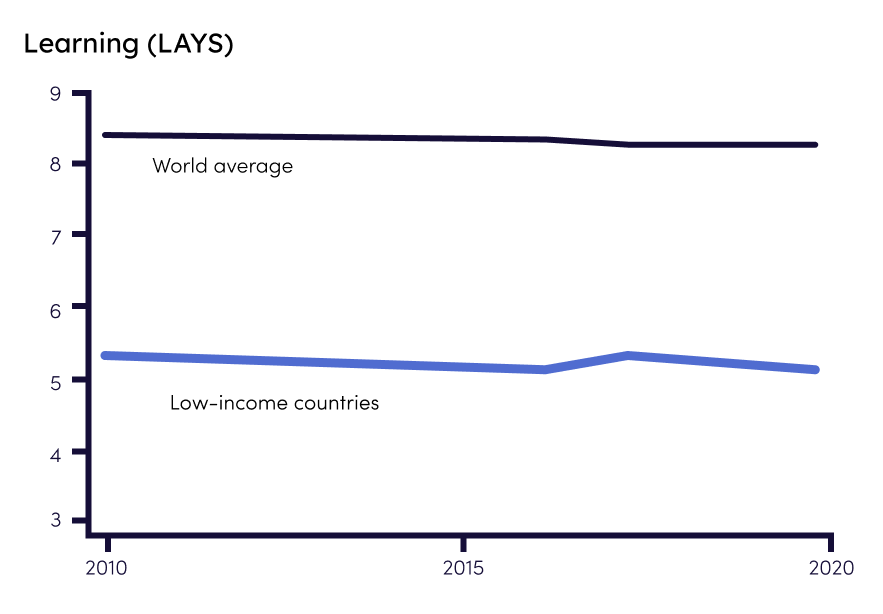#1: Lost teaching time
Discouraged teachers are absent more and teaching less when in school. As time gets lost, children are deprived of the opportunity to learn.
 than any other factor in schools
than any other factor in schools


Discouraged teachers are absent more and teaching less when in school. As time gets lost, children are deprived of the opportunity to learn.
When teachers don’t have the skills and tools they need to efficiently access student learning, children fall behind in their classrooms.
Although there is growing evidence on which teacher behaviors lead to learning in the classroom, teaching standards often don’t practically align with these.
Programs that are designed end up being too theoretical and fail to provide teachers with practical strategies they can use in their next lesson.
Inadequate support and guidance for trainers leads to ad-hoc, lecture-style training that is often based on the trainer’s previous experience.
As a result, training doesn’t get delivered as envisioned, key pedagogical concepts aren’t introduced and teachers don’t get a chance to practice techniques they are expected to apply.
Without specialized ongoing instructional leadership training and having often been out of the classroom for several years, headteachers often end up spending only a small proportion of their time focused on improving teaching.
Where instructional leadership is an explicit expectation of school leaders, a lack of clarity combined with low levels of support and accountability often continues to prevent teachers get very little instructional support from their school leaders.
Coaches/field officers are often responsible for supporting more than 200 teachers across 25 schools spread out across a large area.
Being spread so thinly, their coaching can only be infrequent and unfocussed, which is inevitably inconsistent. Teachers in rural schools are often badly neglected and rarely, if ever, visited.
Without specialized training in coaching or the tools to track the support they provide, field staff often focus only on ‘structural factors’ (like facilities and textbook numbers) and give overly general feedback that is hard to apply.
With little opportunity for high-trust relationships to be built, school visits often don’t feel useful and are experienced as surveillance rather than support.\n\nMeanwhile, paper-based systems place a heavy burden on field staff and necessitate in-person. This leads to lost time supporting teachers.
At the district level, managers unstructured, anecdotal reporting from field staff makes fails to give managers the insights they need to systematically oversee school support. This makes prioritisation impossible and leads to low levels of accountability which stifles productivity and leads to teachers being neglected.
At the ministry level, leaders don’t get the timely reporting and actionable insights they need to hold district leaders accountable for delivery. This makes managing effective rollouts is nearly impossible and means teachers, school leaders getting the support they need to improve learning in classrooms.
Use insights from cognitive science to better design learning experiences for teachers that empower them with powerful, evidence-based techniques.
Build on behavioural science breakthroughs to design programs that help teachers both start and stick to using the most effective strategies.
Capitalise on growing device access and internet coverage by designing programs that harness data to enable systemic, targeted teacher support.
Draw on insights from the most impactful reforms and successful scale-ups to design programs that are cost-effective at system scale.
Simon Graffy
CEO, Inspiring Teachers
Register your details below to secure your
discount towards a Fellowship.